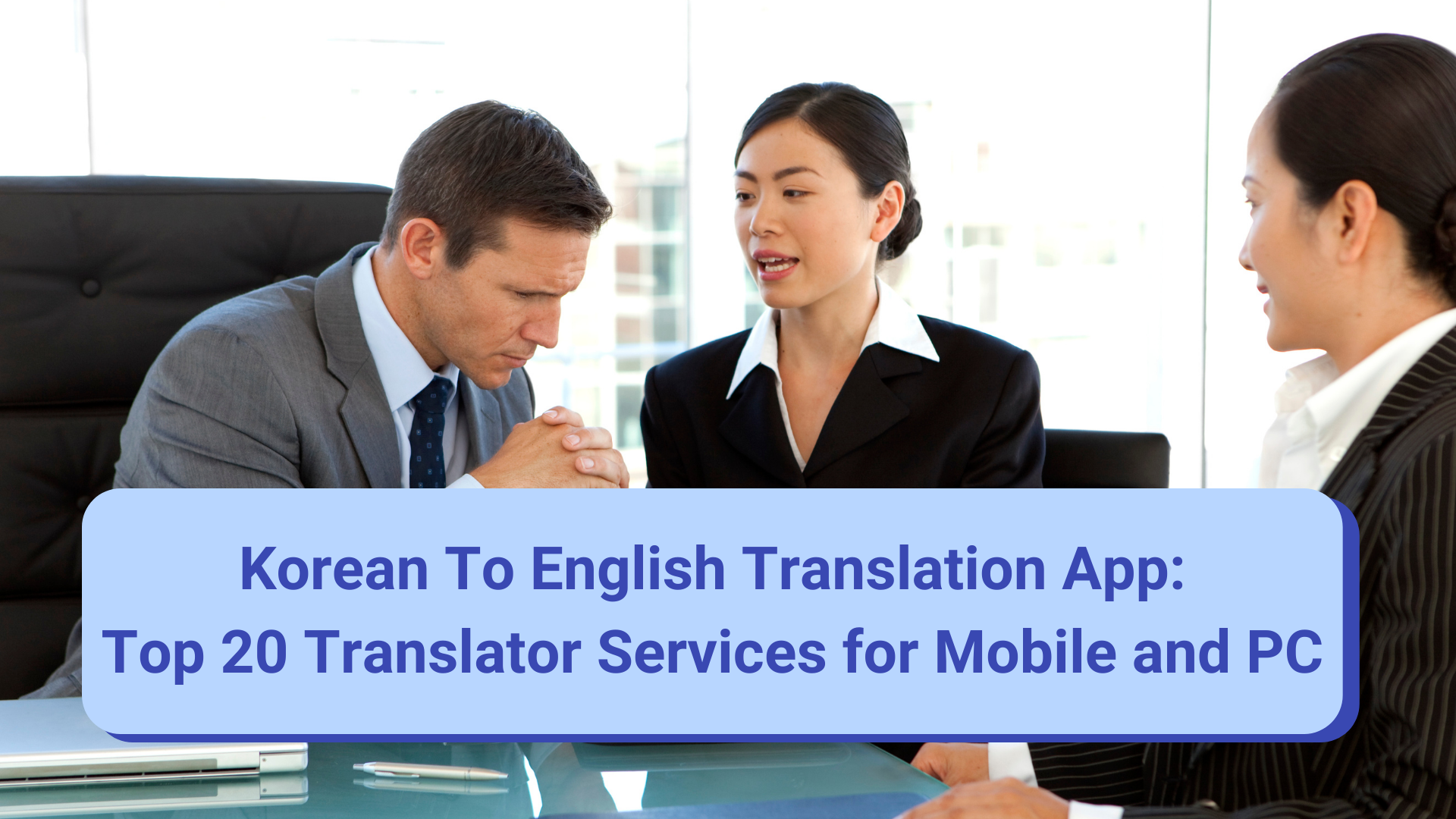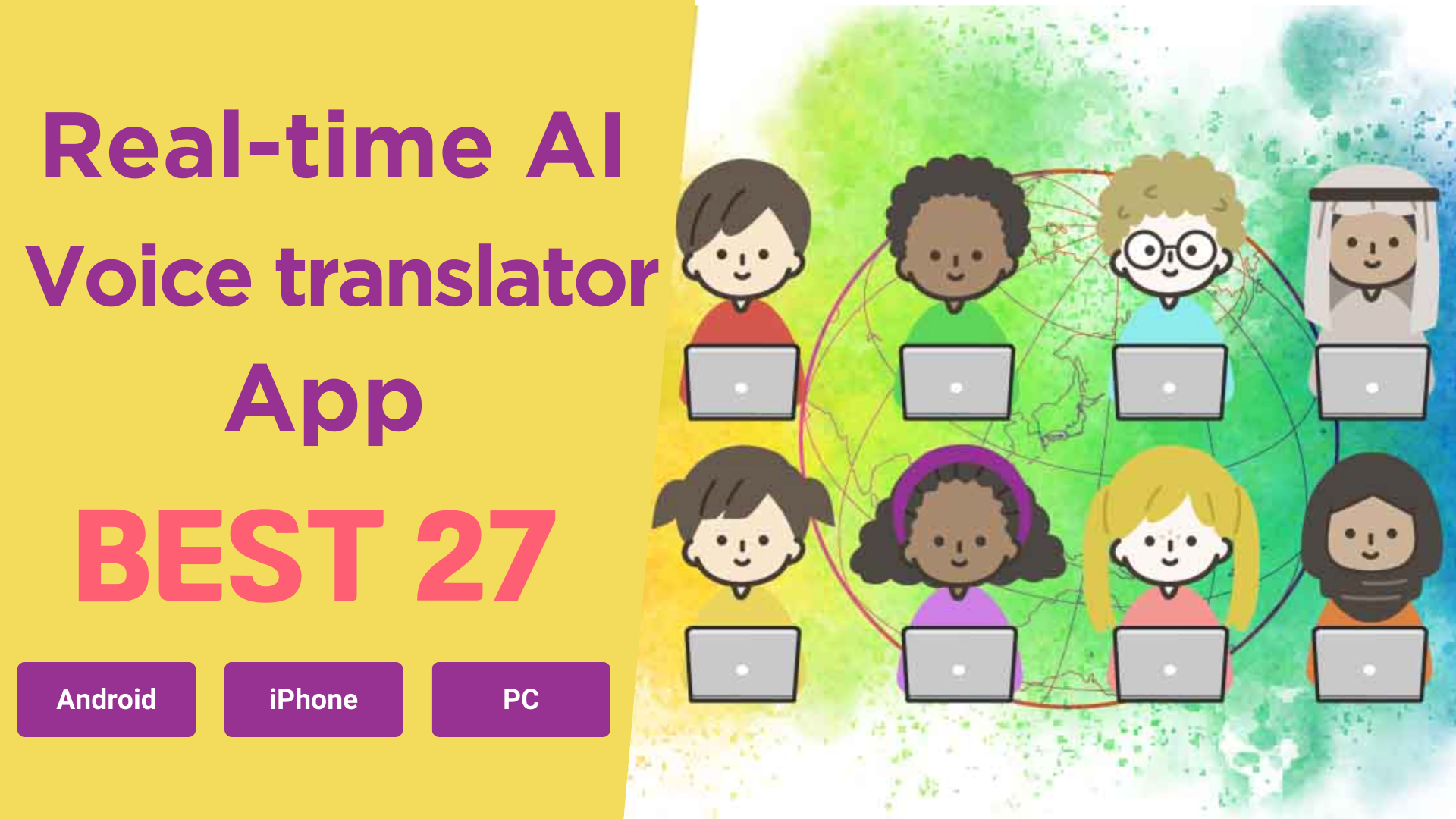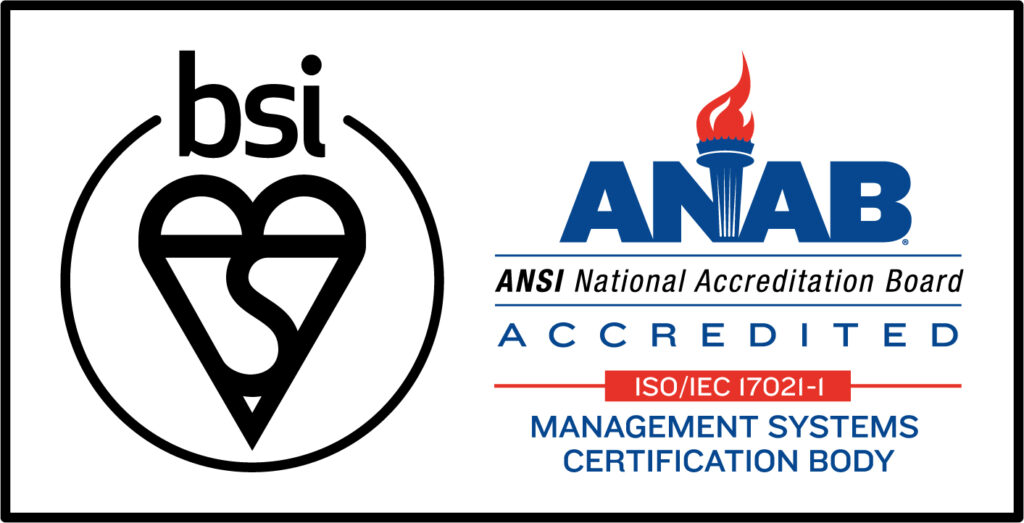As Fukuoka buzzed with energy this season, the city played host to “StartupGo!Go!”—an event dedicated to exploring the potential of startups—on October 9th and 10th, 2024. This year, VoicePing was introduced as a translation tool, breaking down language barriers and enabling seamless cross-cultural communication. We spoke with Mr. Ishigaki, who was at the forefront of organizing the event, to learn more about the excitement on the ground and the challenges behind the scenes.
目次
ToggleStartupGo!Go!: A Global Startup Festival Blending Business and Fun
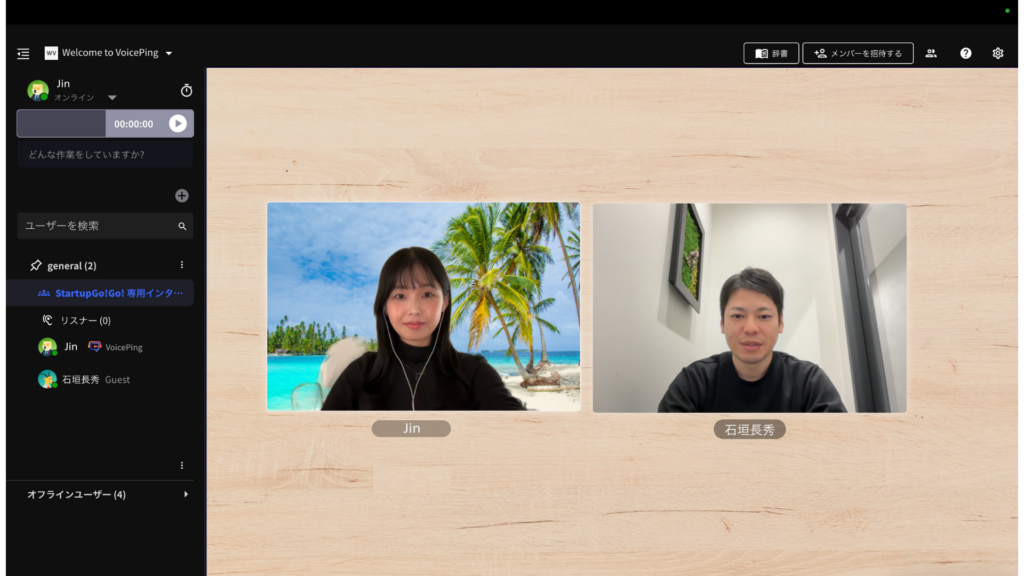
Thank you for taking the time to join us for this interview today. My name is Jin, and I’ll be conducting the session. It’s a pleasure to meet you!
My pleasure!
To start, could you please introduce yourself and tell us about your role in the StartupGo!Go! event?
My name is Ishigaki, and I represent the General Incorporated Association StartupGoGo. StartupGo!Go! is an event focused on fostering connections and hosting pitch sessions for startups. I was in charge of business matchmaking and overseeing the overall event operations. Additionally, I managed the operation of the VoicePing translation tool during the event.
Thank you. Moving on, could you share more details about the StartupGo!Go! event itself?
StartupGo!Go! is an annual event, and this year marked its 11th iteration. It brings together startups, support organizations, and investors from both Japan and abroad. The event aims to facilitate networking and matchmaking between startups and investors, promoting global expansion for startups while enhancing Fukuoka’s international presence.
This year’s event welcomed approximately 3,000 attendees over two days, featuring participants from Asia, including startups, investors, and support organizations. In addition, local businesses, residents, and general attendees joined, making it a highly diverse gathering.
This year’s theme is “Have Fun,” and the pitch stage had a lively, almost concert-like atmosphere. Could you tell us about the inspiration behind choosing this theme and how it differentiates this event from previous ones?
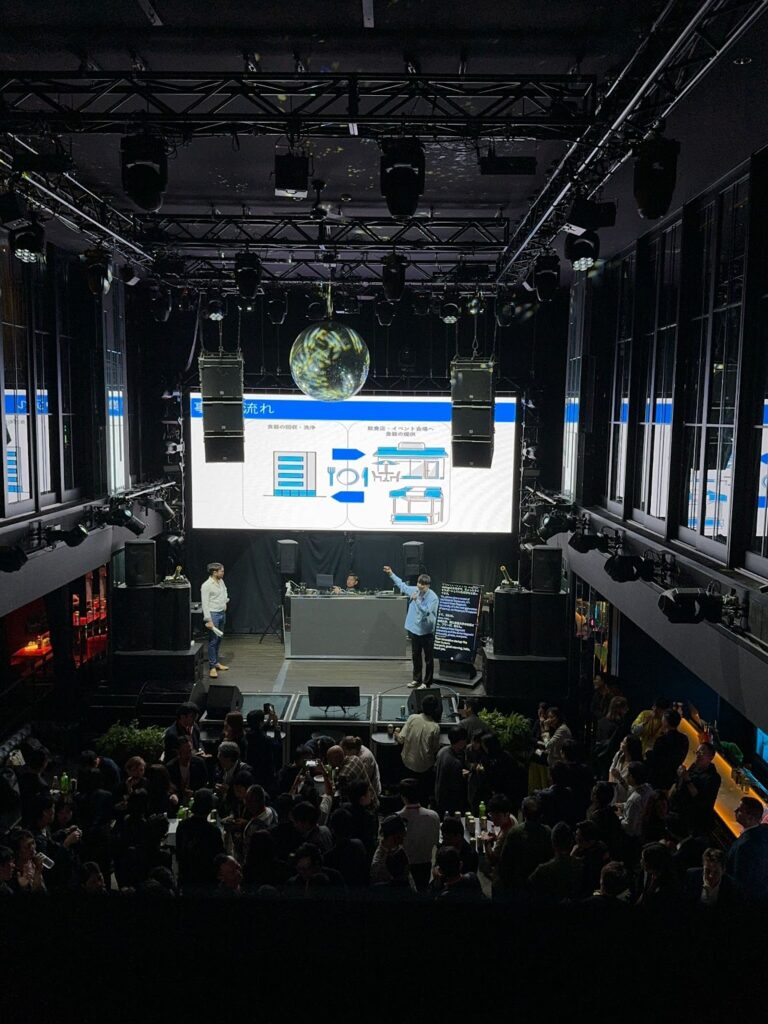
The standout feature of this year’s event was using an outdoor stage as the main venue. This marked our second event at Fukuoka Daimyo Garden City, which opened recently. To go beyond the niche world of startups and encourage broader community participation, we opted for an open and free-spirited atmosphere for the stage.
Another major difference compared to previous events was the noticeable increase in attendees. Last year’s event, held shortly after the pandemic, drew about 2,000 participants. This year, however, we saw a significant jump to around 3,000 attendees. This increase was due to collaboration with Fukuoka City and the participation of many international attendees, particularly from Asia, including Taiwan and Singapore.
The theme “Have Fun” reflects our goal of creating an event where no participant feels isolated and everyone can enjoy themselves. To achieve this, we made basic tickets free and offered a variety of content, such as movie screenings, live music, and a marketplace. By expanding the scope beyond startup-related programs, we created an inclusive environment for both local residents and general participants. This inclusive approach is what sets this year’s event apart and forms the foundation of the “Have Fun” theme.
Were there any specific metrics or moments during the event that stood out as particularly successful for you?
One of the most memorable aspects was the active participation from the local community, not just the startup ecosystem. For instance, ramen stall operators joined us, and residents freely enjoyed the marketplace.
Additionally, post-event surveys showed that 96% of participants found the event beneficial. Notably, about 93% of startup attendees reported forming new connections and opportunities, which was incredibly encouraging.
We also received high praise from attendees who traveled from Tokyo. They highlighted the uniquely vibrant atmosphere of a Kyushu startup event and the opportunity to interact with Asian investors and support organizations—an experience that’s hard to find even in Tokyo. This feedback underscores the unique value this event offers compared to others.
Breaking Language Barriers with QR Codes and Simple Tools: How VoicePing Made the Event Seamless Across Languages

Thank you for sharing so far. Let’s discuss the collaboration between StartupGo!Go! and VoicePing. Before implementing VoicePing at the event, what challenges or concerns were you facing?
The increase in attendees from various Asian countries this year highlighted a key challenge for us. While most keynote and panel sessions were conducted in either Japanese or English, and many attendees understood English, we wanted to explore a way for participants to fully engage in their native languages.
Traditionally, interpreters have often been used in such situations. What made you decide to try AI-powered translation instead?
Yes, we did employ interpreters, and some participants brought their own interpreters as well. However, given the setup of the event—especially in booth areas and matchmaking zones—we realized it was impractical to assign individual interpreters to everyone. This was particularly true for sessions and pitch events with large audiences. Considering both logistical and budgetary constraints, we found AI translation to be an effective solution, which ultimately led to its adoption.
What was it about VoicePing that made you choose it over other options?
The simplicity of its operation was the main reason. We had sufficient time for preparation and testing, which VoicePing provided in advance. This allowed us to thoroughly familiarize ourselves with the app. Its ease of use was such that if I had to step away while operating the app, another staff member could seamlessly take over without any issues.
Initially, we considered using dedicated translation devices, but VoicePing resolved several challenges for us, such as budget constraints and the need to distribute devices to each participant. These factors played a significant role in our decision to implement VoicePing.
This year’s event featured three main components: keynote speeches, pitch sessions, and the pre-event networking party. How was VoicePing utilized across these different segments?

Yes, for the keynotes, pitch sessions, and the pre-event networking party, translations were primarily projected on venue TV screens, providing Japanese-to-English and English-to-Japanese translations.
However, at the final venue, where screens weren’t available, we took a different approach. A few staff members walked around the venue carrying printed sheets with QR codes and called out, “Translations available!” Participants could then scan the QR code with their smartphones to access translations in their native languages. This method worked wonderfully, as it allowed everyone to follow the content conveniently on their personal devices.
Were there any particularly memorable moments where VoicePing stood out during the event?
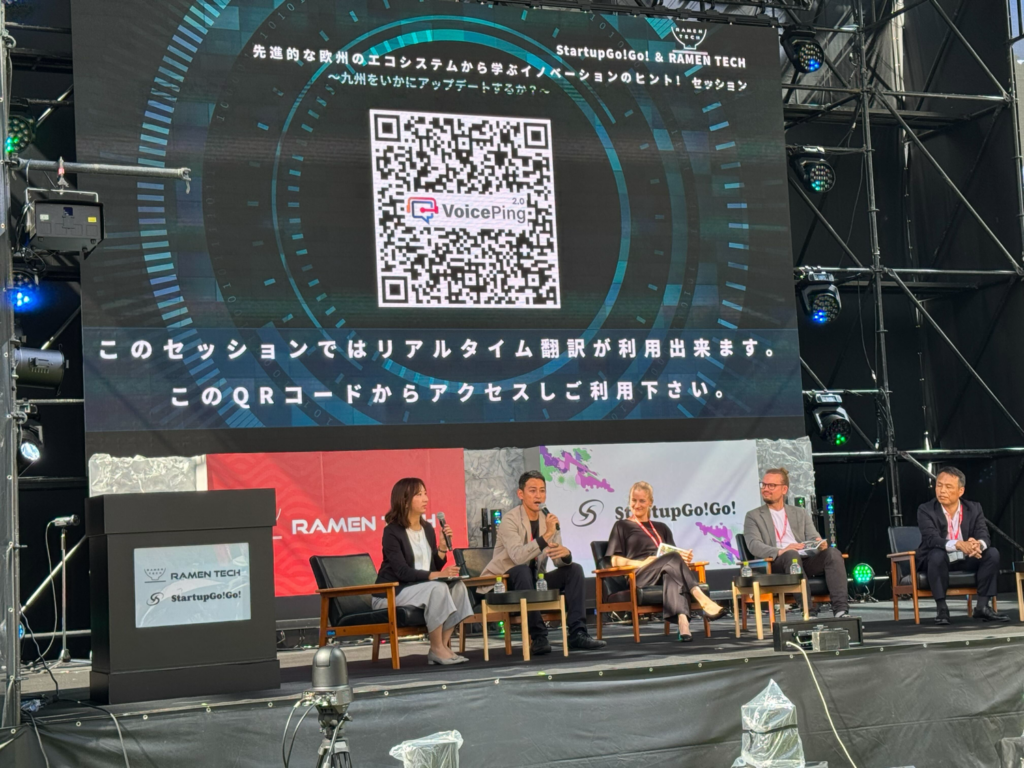
Definitely, the use of QR codes left a strong impression. The main sessions were held in a large venue where we could only share presentation materials on the main monitor, and there were no sub-monitors to display translations.
Since it was a key session, many participants of various nationalities gathered after finishing their sessions at other venues earlier in the evening. The QR codes proved invaluable in this situation, enabling a large number of attendees to access translations on their smartphones. It was a simple yet highly effective solution that ensured everyone could follow the content, regardless of the language barrier.
Strengths of VoicePing Observed at the Event and Areas for Improvement
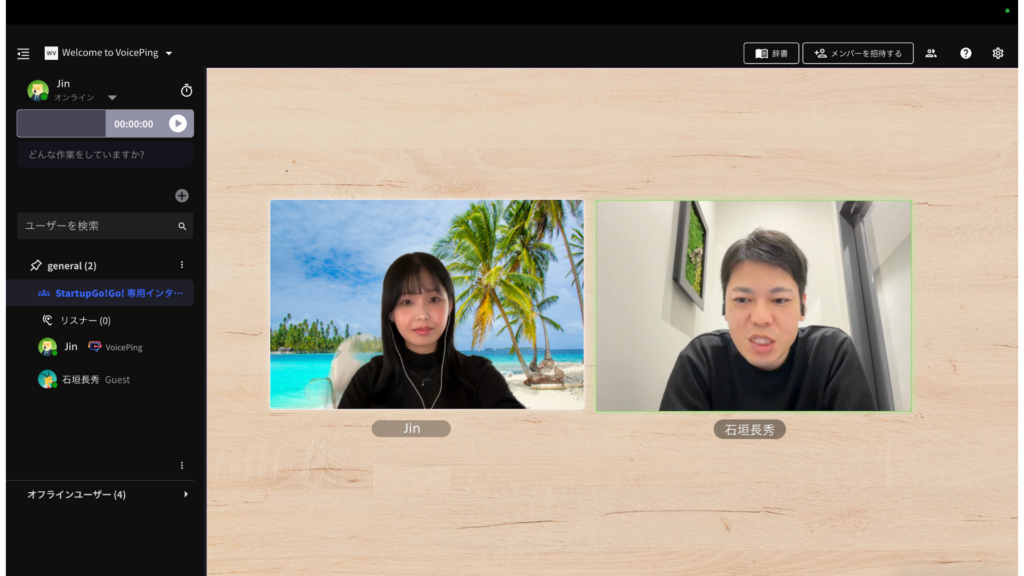
What were your impressions of using VoicePing?
My overall impression was how simple it is to use. Managing two or more venues simultaneously required training other staff, but the ease of operation was such that anyone with a PC could quickly grasp it. The straightforward setup and user-friendly interface were incredibly helpful.
I was also impressed with the translation accuracy. The speed of processing was remarkable, and even when there were recognition errors, the system often self-corrected by analyzing the context. When handling specialized content, I found that technical terms and proper nouns were recognized accurately most of the time. While we didn’t use the dictionary feature this time, the translation accuracy was outstanding even without it.
Did you receive any feedback from the participants?
Yes, particularly about the QR code functionality. Given the large scale of the main venue and the number of participants, projecting translations on TV screens alone would have made it difficult for those seated in the back to follow along. Many attendees appreciated being able to view translations conveniently on their smartphones via the QR code.
Were there any areas for improvement or feedback you noticed during the event?
One improvement I’d suggest is the automation of language settings. For sessions that alternated between Japanese and English, we had to manually switch the input and output languages. If both the input and output language settings could adjust automatically based on the content, it would greatly enhance usability.
Is there anything else you’d highlight as a potential improvement?
Another point would be the app’s shutdown issue. There were instances where the app shut down after 30 minutes of inactivity. While it was easy to restart and return to the translation screen, it was a slight inconvenience during operations. If this issue could be resolved, it would make the app even more reliable for event management.
AI Translation Tool VoicePing: A Bridge Connecting Local and Global Startup Ecosystems
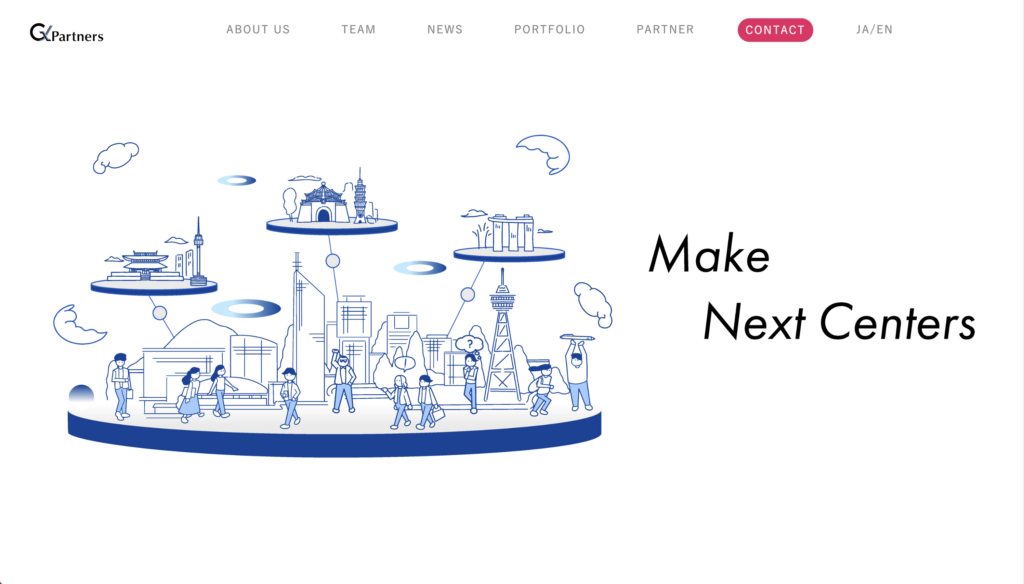
From your perspective as an event organizer, how do you see real-time translation technologies like VoicePing contributing to global collaboration and networking at events like StartupGo!Go! in the future?
StartupGo!Go! is gradually growing into a truly global event, attracting participants from diverse nationalities. While many attendees, including Japanese participants, can use English, there are still challenges—some struggle to understand due to accents or the use of specialized terminology. This can discourage participation, particularly when attendees can’t fully grasp presentations or discussions due to the use of niche technical terms or unique expressions.
In such scenarios, tools like VoicePing play a critical role in breaking down these language barriers. They enable all participants to understand the content seamlessly in their native languages. Even those who might initially hesitate to participate due to language concerns can join confidently when they can follow along in their own language. This fosters open communication and reduces any feelings of isolation among attendees.
By facilitating barrier-free communication on topics of interest, real-time translation helps create meaningful connections among participants, ultimately driving networking and collaboration. Over time, this inclusivity can significantly boost attendee numbers and broaden the reach of the event.
What activities are being planned to support the startup ecosystem in the Fukuoka region?
StartupGoGo, the event’s organizing body, is supported by GxPartners, a venture capital firm established in 2018 in Fukuoka. Our founder, originally from Fukuoka, was inspired about a decade ago after experiencing startup-related events in Tokyo. They envisioned hosting similar events in Fukuoka to nurture the local startup community. Over time, like-minded individuals joined forces, and the scale of these activities grew, leading to our ongoing investment efforts.
StartupGo!Go! began 10 years ago with just three founders and was initially created as a platform for startups to deliver their first-ever pitches. That mission remains central to what we do today. Moving forward, we aim to deepen our focus on fostering Fukuoka’s startup ecosystem while also expanding connections with other international regions. We’re committed to exploring new initiatives that help us move to the next stage of global collaboration and growth.
▼Overview of General Incorporated Association StartupGoGo
Established: January 2016
Location: 2F, Terrace Building, Fukuoka Daimyo Garden City, 2-6-53 Daimyo, Chuo-ku, Fukuoka City, Fukuoka Prefecture, Japan
Business Activities: Startup support
Website: https://startup-gogo.com/
▼Overview of GxPartners LLP
Established: January 2018
Location: 2F, Terrace Building, Fukuoka Daimyo Garden City, 2-6-53 Daimyo, Chuo-ku, Fukuoka City, Fukuoka Prefecture, Japan
Business Activities: Venture capital, operation of the Kyushu Open Innovation Fund
Website: https://gxpartners.vc/
Transform Your Event into a “Global Festival of Knowledge Sharing” with VoicePing!
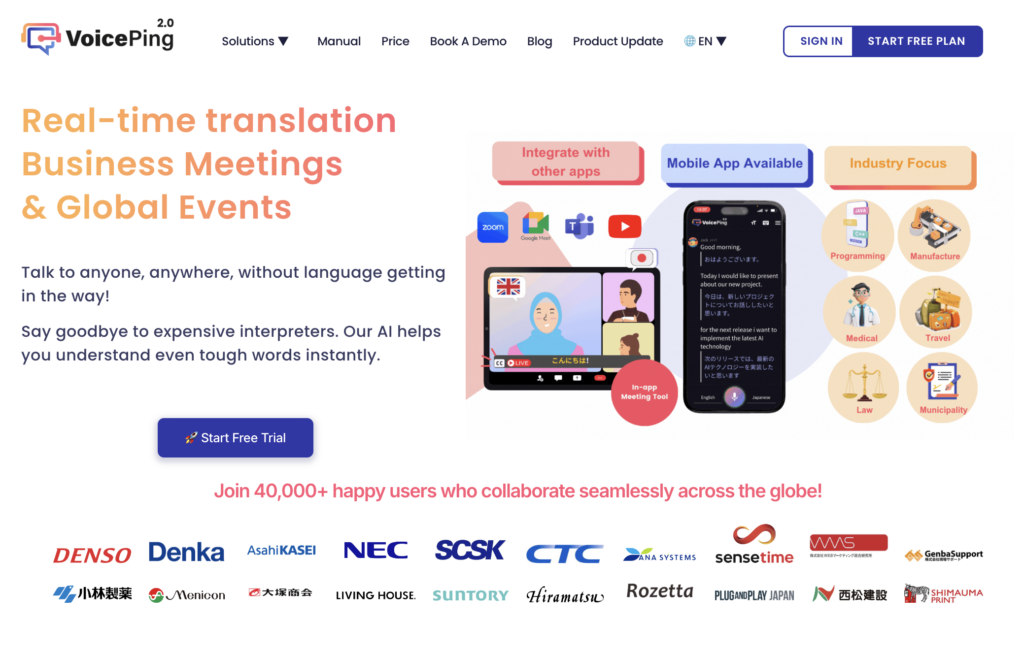
VoicePing removes language barriers with fast and accurate real-time translation, creating a seamless environment for participants from diverse nationalities and cultures to connect and collaborate.
📱 Just Scan the QR Code!
Easily access translations on your smartphone. Whether it’s during keynotes, pitch sessions, or networking events, VoicePing ensures smooth communication.
Benefits of Using VoicePing for Your Event:
🌍 Enable Multinational Attendees to Engage in Their Native Language
Participants can fully understand and participate in every session without feeling limited by language barriers.
⚡ Simplify Event Management with Easy-to-Use, High-Accuracy Translation
VoicePing’s intuitive interface and rapid translation reduce operational workload significantly.
💡 Enhance Participant Satisfaction and Event Ratings
Provide a higher-quality experience by offering robust translation support, earning positive feedback and boosting the reputation of your event.
If you’re ready to elevate your next event into an international platform for knowledge sharing, VoicePing is here to help!
📌 Sign Up Today for Free!
Learn more by signing up for a personalized demo session. Don’t wait—transform your event now!



